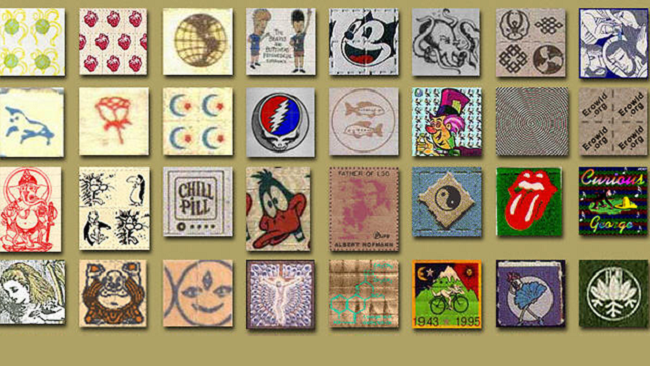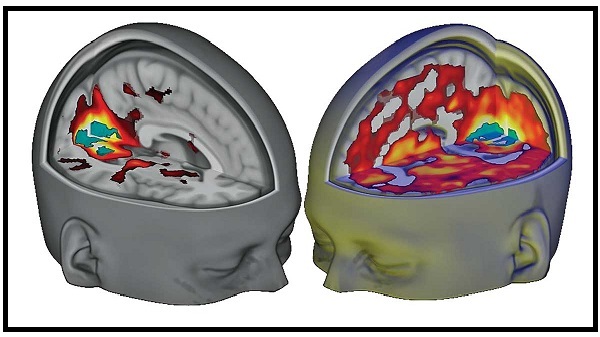LSD is the abbreviation for lysergic acid diethylamide (from the German Lysergsäurediethylamide), one of the most potent hallucinogenic drugs out there.
LSD is a synthetic liquid substance (created in the laboratory) with no odor, no color and a bitter taste. Its most common form of use is through the oral route, with the ingestion of drops diluted in water or absorbed in paper microdots.
LSD is a drug that is prohibited for use, possession and sale and, in most countries, criminalized. Depending on the region, LSD is also popularly called acid, candy, paper, or square.

The most common form of commercialization of LSD is through paper microdots in which the substance is dripped and absorbed.
LSD Effects

Brain activity monitoring has proven that LSD increases blood flow in the brain and creates connections between neurons.
Several experiments have already shown that LSD increases neural activity and creates connections between different parts of the brain. These effects cause numerous changes in perception, which start about 1 hour after ingestion of the drug and can last up to 12 hours. Also, the most common effects involve:
Physical effects
- Increase or decrease in heart rate and blood pressure
- Insomnia
- Dehydration
- Dilated pupils
- Dizziness
- Lack of appetite
psychological effects
- hallucinations
- Mental confusion
- Panic and Anxiety Attacks
- Euphoria
- Loss of space
- Dissociation of body and reality
LSD is also considered an entheogenic substance, that is, it provides altered states of consciousness, allowing users to have spiritual experiences.
LSD is so potent that its dosage is always in milligrams. It is possible that a small dose of 50 milligrams (for context, doses can be as high as 400 milligrams) will cause effects that last for more than 12 hours. Also, it is common for an individual who has ingested LSD to experience flashbacks (episodes of relapse of effects) at some point in the future even without new uses of the drug.
What are the health risks?
The substance is not chemically dependent, but the effects of euphoria and dissociation from reality can cause psychological dependence, especially in users with depressive tendencies. Furthermore, some studies have shown that the repeated use of the drug can increase the predisposition to schizophrenia.
History and origin of LSD
LSD was first synthesized in 1938 by Swiss scientist Albert Hofmman, who developed the substance from lysergic acid found in the fungus. purple claviceps. However, the drug's hallucinogenic properties were only discovered years later.
On April 19, 1943, the date that became known as “Bike Day,” Albert Hoffmman performed an experiment on himself and ingested 0.25 milligrams of LSD. In less than 30 minutes, while riding his bicycle home, the scientist experienced intense changes in perception and feelings of anxiety, paranoia and happiness. Bike Day is celebrated by psychedelic communities as the date of the discovery of LSD.

Albert Hoffman, creator of LSD and other hallucinogenic substances.
In 1947 LSD was introduced to the market under the name “Delysid” as a drug with various psychiatric uses.
From the 1950s onwards, LSD experiments generated more than 1000 scientific theses, dozens of books and six international conferences. At the time, the substance was prescribed as a treatment for more than 40,000 patients. Furthermore, experiments showed that LSD was an effective way to combat alcoholism and increase creativity in artists.
In the mid-1960s, the US government removed LSD from circulation and made the use of the substance, in any form, illegal. Over time, the same measures were taken in the rest of the world.
See too:
- Damn it
